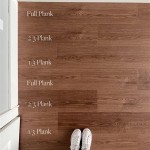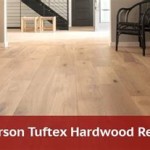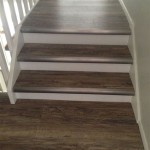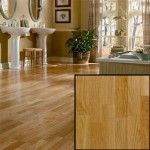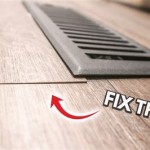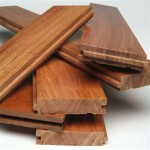What Is the Best Flooring to Put Down in a Basement Apartment?
Transforming a basement into a comfortable and functional living space often involves choosing the right flooring. Basement apartments present unique challenges due to potential moisture, uneven surfaces, and limited natural light. Selecting the best flooring requires careful consideration of factors like durability, moisture resistance, cost, and aesthetics. This article explores various flooring options suitable for basement apartments, outlining their pros and cons to guide informed decision-making.
Durability and Moisture Resistance: The Key Considerations
Durability is paramount in a basement apartment, as it often experiences heavier foot traffic than other areas of the home. Moisture resistance is equally important due to the higher risk of humidity and potential leaks. Flooring should withstand spills, scratches, and wear and tear while resisting water damage and mildew growth.
Best Flooring Options for Basement Apartments
Several flooring options offer a combination of durability, moisture resistance, and aesthetics, suitable for basement apartments.
1. Vinyl Plank Flooring
Vinyl plank flooring is a popular choice for basement apartments due to its water resistance, durability, and affordability. It comes in various styles, mimicking wood, tile, or stone, offering a wide range of aesthetic options. Vinyl planks are also relatively easy to install, and some types feature a click-lock system for convenient installation.
Pros:
- Water-resistant and easy to clean
- Durable and scratch-resistant
- Wide range of styles and colors
- Affordable compared to other options
- Easy installation for DIY projects
Cons:
- Can feel cold underfoot
- May not be as soundproof as other options
- Can show wear and tear over time
2. Luxury Vinyl Tile (LVT)
Luxury vinyl tile (LVT) is a premium version of vinyl plank flooring with a thicker wear layer, resulting in increased durability and a more realistic appearance. LVT offers excellent water resistance and comes in various styles, including wood, stone, and abstract designs.
Pros:
- Highly durable and scratch-resistant
- Water-resistant and easy to clean
- High-quality, realistic appearance
- Variety of styles and colors
- Can withstand heavy foot traffic
Cons:
- More expensive than vinyl plank flooring
- Installation can be more complex than vinyl plank
3. Engineered Hardwood Flooring
Engineered hardwood flooring offers the beauty and warmth of real wood with enhanced moisture resistance. It consists of layers of wood veneer bonded to a plywood core, making it more stable than solid hardwood and less susceptible to warping or cupping. This makes it a suitable option for basement apartments with moderate humidity levels.
Pros:
- Offers the beauty and warmth of real wood
- More stable and durable than solid hardwood
- Offers a range of wood species and finishes
- Can be refinished multiple times
Cons:
- More expensive than vinyl or LVT
- Requires professional installation
- Less water-resistant than vinyl or LVT
4. Ceramic or Porcelain Tile
Ceramic and porcelain tiles are highly durable and moisture-resistant, making them excellent choices for basement apartments. They are easy to clean and withstand heavy foot traffic. Tiles come in various designs, colors, and sizes, allowing for creative and personalized flooring designs.
Pros:
- Durable and scratch-resistant
- Highly water-resistant
- Easy to clean
- Wide range of styles and colors
- Can be used with radiant heating systems
Cons:
- Can be cold underfoot
- Installation can be complex and require professional skills
- Can be expensive depending on the tile type
- Can be noisy if not properly installed
5. Concrete Flooring
Concrete floors offer a durable and moisture-resistant option for basement apartments. They can be polished for a sleek and modern look, or stained and sealed for a more rustic appeal. Concrete is also a great choice for radiant heating systems, providing a comfortable and energy-efficient floor.
Pros:
- Highly durable and moisture-resistant
- Can be polished for a sleek look or stained for a rustic appeal
- Can be used with radiant heating systems
- Cost-effective option
Cons:
- Can be cold underfoot
- Requires proper preparation and sealing
- Limited design options compared to other flooring choices
Choosing the best flooring for a basement apartment requires considering factors like durability, moisture resistance, cost, and aesthetic preference. Vinyl plank flooring, LVT, engineered hardwood, ceramic/porcelain tile, and concrete offer suitable options with varying pros and cons. By analyzing these options and weighing their advantages and disadvantages, homeowners can make an informed decision that best meets their needs and creates a comfortable and functional basement apartment space.
The Best Flooring Options For Your Basement America

Don T Buy New Flooring Before You Check This Out

The Best Flooring Options For Your Basement

6 Of The Best Flooring Options For Basements Colorado

How To Choose The Right Floor For Your Basement Gc Flooring Pros

5 Best Flooring Options For Basements Floors2day

Best Basement Flooring Options Costs And Ideas 2024

Flooring Ideas For A Basement What S The Best Option Carpet Time Nyc

Smart Ideas For Your Basement Flooring

6 Inspiring Ideas For Basement Flooring In Portland
See Also
